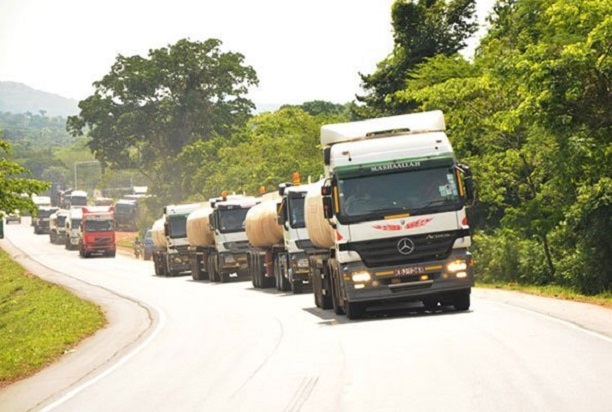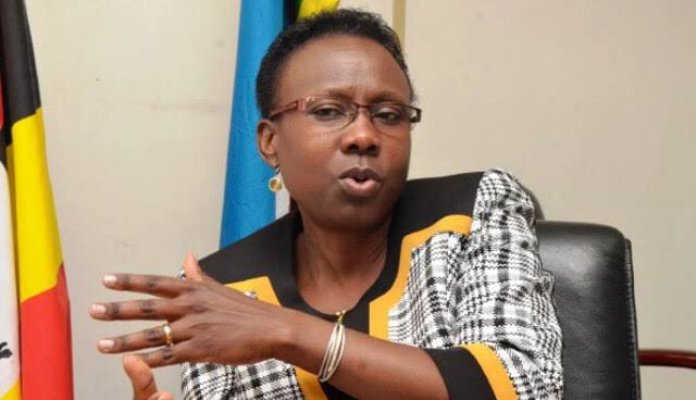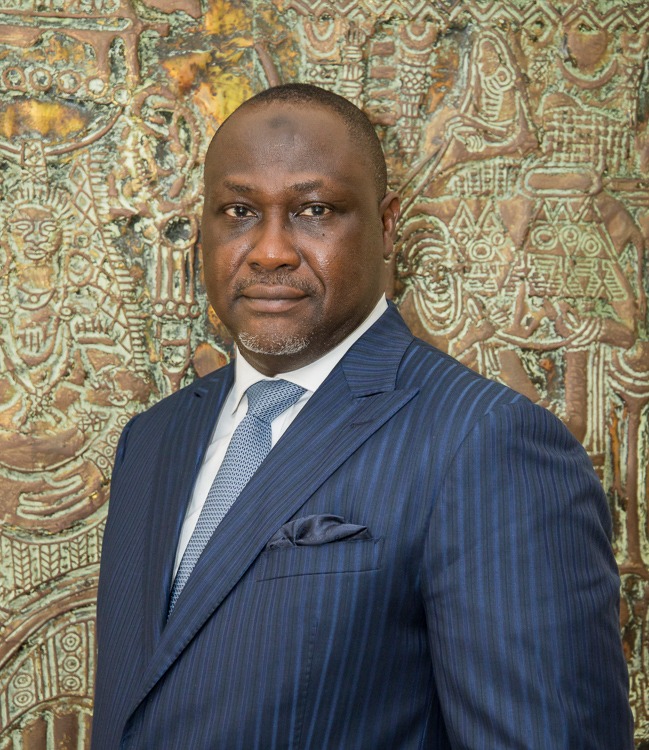Business activity between Uganda and Kenya resumes though on a slow note as post-election uncertainty persists among the business community and the general public.
This comes amidst reports that the containers destined for Uganda at Mombasa are piling up at the Kenyan port, the main cargo gateway into the East African region.
The Kenyan route, the Northern Transport Corridor, accounts for about 76 per cent of the cargo destined for Uganda. But the figure had dropped over the last few years as more importers embraced the Tanzanian route.
The elections in Kenya usually create uncertainty amongst the business community and the general public in the region as a whole, since the violent post-election violence of the 2007 polls there led to importers and transporters losing billions of shillings in merchandise.
Jemba Kanakulya-Mulondo, the head of port security at Kampala City Traders Association- KACITA says about 4,000 Uganda-bound cargo containers are stuck at Mombasa, with truckers not willing to take the risk.
The government has been encouraging Ugandans to use the Tanzania route until the situation in Kenya stabilizes.
The route through Tanzania, the Central Transport Corridor, was boosted last year when Uganda piloted the importation of petroleum products through Dar Es Salaam port onto the Lake Victoria vessels to Kampala.
However, Byron Kinene, the chairman of the Regional Lorry Drivers and Transporters Association says that even with the uncertainty that comes with the elections in Kenya, some Ugandans will find it hard to switch to new routes.
“I want to tell you, someone who does business through Mombasa cannot easily switch to Dar-Es-Salaam,” says Kinene. He also says apart from the importers being used to the route, it is also cheaper compared to the Central Corridor.
KACITA-Uganda Chairman Thaddeus Musoke says the Kenya elections came at a time when business was already low in Uganda following a slowdown in economic activities mainly due to high inflation. “Even if it has not been the Kenya elections, the traders and importers were already seeing falling business. You import goods and sell them to who?” Musoke wondered, adding that this is the same reason why there is not a lot of business switching to the Tanzania route despite the efforts by the governments of Uganda and Tanzania and the private sector leaders.
“Only those who are importing as an emergency can bring their goods through Tanzania. Otherwise, the route is very expensive and slow,” he said. Amidst the debate on the routing, Maritime Kenya, a shipping and logistics company based at Mombasa said on Wednesday, that trucks had resumed moving cargo from Mombasa to Uganda as the business community felt the situation was becoming clearer.
“Trucks destined for Uganda, Tanzania, Rwanda, Congo etc. from Port of Mombasa, have started to Move. Election anxiety is now behind us. With the next government administration, we are inclined to an increase of cargo throughput into Kenyan Ports, thus increase in TBL (domestic and transit) shipments,” the company said in a statement.
This was also echoed by Ugandan and bus operators and traders in Kampala.
Francis Kisekulo, a manager at Simba Coach said that the company had cut down on the number of buses plying the Kenya route when campaigns started.
The company has at least 10 buses but because of uncertainty, they could not risk all their buses to Kenya. He however says they did not stop their operations.
Fredrick Katumba from Mash Poa Bus Company said that the company stopped plying to Kenya a day before the elections in fear of what could happen.
Katumba adds that most of the bus companies in Uganda stopped going to Kenya during the same period and they have just resumed today although the passenger flow is still very low as passengers still fear going to Kenya even after the elections.
One trader, an importer of shoes who had run out of stock said he attempted to go to Kenya last week, but was informed that his suppliers in Nairobi had not opened.
“Now more stores in Kenya are opened and I intend to travel later today to bring more stock,” said Fahd Kanyike, a shoe importer at Farmers’ House at Container Village, along Channel Street.
Uganda Cargo Consolidators Association, a group of transporters of cargo between Uganda and the ports, says that they are still waiting for the situation to get clearer.
They say that most of their partners in Kenya first closed business and went to their homes to participate in the elections while others took longer saying they were monitoring the security situation before returning to Mombasa, Nairobi or Kisumu.
Consolidators arrange transport for importers or exporters especially those who cannot afford to hire a container, group them and contract a truck to ship the consolidated cargo. “After the election, still the situation is not yet stable because Kisumu is unpredictable, and that is where we pass. We don’t want to risk, so we are first waiting to understand the situation,” said Kenneth Ayebare, the Chairman of the UCCA.
This is also changing the way the sector was operating, with truck owners asking not to be liable for any loss or damage to the goods in transit.
“Even transporters that intend to transport your goods now are telling us that look, you need to write to us indicating that if anything happens to the goods on the road then we are not liable. And that is something that we are not comfortable with,” Ayebare says.
On the Dar-es-Salaam route as an alternative, Ayebare says it is not viable for them because of the costs involved. He says for example, that it costs 1,800 dollars more to transport a container from Dar-es-Salaam, and so it is only viable for bulk cargo like petroleum.
“And multimodal transport is not yet developed to the extent that they cater for general cargo. They are only looking at bulk cargo. So traders are looking aside. You can’t give someone your container to spend a month on the way. There are no guarantees, for now, there is no arrangement for general cargo, mostly cargo for traders, which is really a bit tricky,” Ayebare said.
The multimodal transport through Tanzania involves using the railway from the coast to the Lake Victoria port of Mwanza, from where a ship will move the cargo to ports in Uganda. However, Ayebare says that while this system was well-thought, it is only ready on the Tanzania side, while in Uganda a lot has to be done.
“Uganda Railways Corporation has no arrangement totally for the railway, for water… for general cargo. They are still looking at fuel…bulk cargo generally. So for general cargo we still have to use Mombasa,” he said.
-URN





